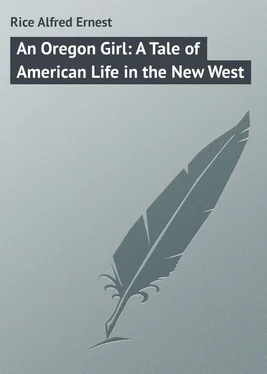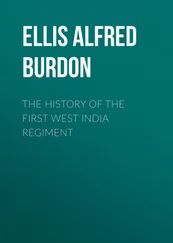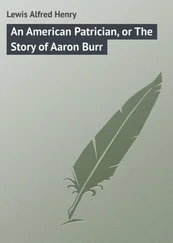Alfred Rice - An Oregon Girl - A Tale of American Life in the New West
Здесь есть возможность читать онлайн «Alfred Rice - An Oregon Girl - A Tale of American Life in the New West» — ознакомительный отрывок электронной книги совершенно бесплатно, а после прочтения отрывка купить полную версию. В некоторых случаях можно слушать аудио, скачать через торрент в формате fb2 и присутствует краткое содержание. Жанр: foreign_prose, foreign_adventure, на английском языке. Описание произведения, (предисловие) а так же отзывы посетителей доступны на портале библиотеки ЛибКат.
- Название:An Oregon Girl: A Tale of American Life in the New West
- Автор:
- Жанр:
- Год:неизвестен
- ISBN:нет данных
- Рейтинг книги:4 / 5. Голосов: 1
-
Избранное:Добавить в избранное
- Отзывы:
-
Ваша оценка:
- 80
- 1
- 2
- 3
- 4
- 5
An Oregon Girl: A Tale of American Life in the New West: краткое содержание, описание и аннотация
Предлагаем к чтению аннотацию, описание, краткое содержание или предисловие (зависит от того, что написал сам автор книги «An Oregon Girl: A Tale of American Life in the New West»). Если вы не нашли необходимую информацию о книге — напишите в комментариях, мы постараемся отыскать её.
An Oregon Girl: A Tale of American Life in the New West — читать онлайн ознакомительный отрывок
Ниже представлен текст книги, разбитый по страницам. Система сохранения места последней прочитанной страницы, позволяет с удобством читать онлайн бесплатно книгу «An Oregon Girl: A Tale of American Life in the New West», без необходимости каждый раз заново искать на чём Вы остановились. Поставьте закладку, и сможете в любой момент перейти на страницу, на которой закончили чтение.
Интервал:
Закладка:
Once he shivered as if shaken with a cold of the shadow of some indefinable disaster about to overwhelm him, and then he passed on down the steps muttering to himself in an abstracted manner, “Doubt; terrible, torturing doubt; I cannot endure it!”
“Welcome, Mr. Thorpe,” came from Rutley in the mild regularly moderated voice of a man content with his surroundings. “It only needs the quiet tones of a gifted conversationalist to make this beautiful spot supremely pleasant. All honor to Mrs. Harris and her companion.”
Mrs. Harris, accompanied by Virginia, had just then appeared from around the east side of the house – “Ah, my lord, your absence from the ballroom occasions much inquiry,” said Mrs. Harris.
“Mrs. Harris will confer a favor by satisfying the inquirers with the excuse that his lordship is enjoying a smoke with a friend. Does my lord approve the answer?” replied John Thorpe, eyeing Rutley furtively.
“Most decidedly!” he affirmed.
“Then Virginia and myself will be spectators of the next waltz. Your lordship will favor us with your company soon? Mr. Thorpe, you will not forget your promise to Constance for the Newport?”
“Just in time, eh, auntie, I guess so!” cut in the cheerful voice of strenuous Sam, who had bounded down the steps and stood in front of them before they could turn around.
“Oh, horrors!” gasped Virginia under her breath.
“Why, Sam!” laughed Mrs. Harris, “you want me to dance with you again and Virginia here?”
“Oh, no, not you! I mean her, auntie. If you please,” and he bowed to Virginia as he offered her his arm.
Without an instant’s hesitation she accepted his arm and at the same time so artfully masked her real feelings that the hot blood raced with joyous glee to the very roots of his hair and caused him to say proudly, “Ha, ha! at last, eh, auntie!”
“I shall be a witness, Sam,” replied his aunt in a tone which conveyed a warning.
On ascending the steps Virginia paused to gather up her skirt, turned half around and looked very significantly at Rutley.
He met her glance and bowed. The action brought Mrs. Harris also to a stop.
Observing the halt, Mr. Thorpe exclaimed, “His Grace and myself will be along presently. Au revoir.”
And as the party moved on, Sam rejoined under his breath, “I guess so, but not with his fair party, not if Sam knows it.”
In the silence that followed for both men, now being alone, were alert, instinctively apprehending danger, John Thorpe drew from the inside pocket of his coat a small cigar case and tendered it to Rutley.
Silently and with studied poise, Rutley took therefrom a cigar and returned the case.
Thorpe then took from the case a match, lighted and offered it to Rutley, who, having meanwhile clipped the end of the cigar with a penknife, accepted the light and then broke the silence with, “Are you not going to smoke, Thorpe?”
“Not at present. A stroll through the grounds is more to my fancy.”
“Agreed!” promptly responded Rutley, who added, “and may the exercise lighten your spirits, which appear heavy tonight.”
“Yes, unfortunately I have never been able to conceal my emotions, hence the correctness of your conjecture. My spirits are heavy tonight,” replied Thorpe in a low voice and with a deep, long drawn sigh.
It was plain to Rutley that Thorpe was evading an abrupt approach to some potent question in his mind, feverishly eager, yet dreading the kind of information it might elicit.
“Bad digestion, Thorpe. Headaches, troubled dreams and the like fellow,” suggested Rutley in his jerky manner.
“Deeper!” added Thorpe in a low voice.
“Ha!” exclaimed Rutley significantly, as he eyed his companion askance. “Family!”
“Oh, God! what shall I do?” suddenly broke from Thorpe in a stifled cry of anguish. “I cannot carry the load!” And then he did that which some readers might term a cowardly thing. No doubt he was actuated by motives irresistibly impelling in a man of his peculiarly sensitive nature.
With head bent low, much as a culprit condoning his infamy, humbled as was his pride, to thus confide his misgivings to a stranger, he began in a low voice:
“My Lord, a few moments since I casually heard you drop a remark suggesting a knowledge of my domestic affairs. I speak to you in confidence, and I am sure Your Grace will spare me the humiliation of feeling that confidence is misplaced. Your position gives you at times the advantage of hearing – a – things said of others that is of no moment or concern to you.”
Rutley’s first thought was, “My opportunity to strike at Corway has come,” and if Thorpe at that moment could have seen the cunning leer play about the corners of Rutley’s mouth and the flash of exultation that sprang into his eyes, he might have hesitated, nay, ceased to have conversed with him further on such a grave subject.
But the fleeting smile went unseen, the exultant flash as quickly disappeared, and in its place a very serious look came over Rutley’s face, as in a low voice he replied, slowly but very distinctly. “Really, Thorpe, I am at a loss to understand your motives in questioning me on matters relative to your domestic affairs, and though I may possess information in which I am not particularly interested, still to asperse the character of any person on mere rumor is not compatible with the dignity or honor of my house; however, if you will be explicit on the subject of your singular request, I shall, through sympathy, communicate all I have heard to relieve or confirm your mind of a – I fancy – a terrible suspicion.”
For a few moments Thorpe could not control his agitation. Overpowered by a sense of shame, his imagination at once conjured up dreadful thoughts.
“Sympathy! a – a – to relieve or confirm a terrible suspicion! My God! what does he mean?” And he placed his left hand tightly over his breast as if something hurt him there, while a cold sweat stood out on his brow. Then with a forced calmness, said:
“A – a – have you heard any disparaging remarks about – a – Mr. Corway?”
“Well, Thorpe, you know ’tis not honorable to repeat the ‘chic’ scandals one hears, though to satisfy you I will say that if you will look at the little finger of Corway’s left hand, you will see a gold ring with a single diamond set in a double heart, which he at times – a – carelessly displays.”
“A ring with a single diamond! What of it?” impatiently questioned Thorpe.
“Oh!” replied Rutley, with an imperturbable stare, “it was a love token from Mrs. John Thorpe.”
“You lie!” exclaimed Thorpe, the nails of his fingers imprinting deeply in the flesh of his tightly clenched fists, with the fierceness of the passion that had flamed within him.
“I do not lie!” Rutley calmly and slowly replied, as he looked steadily into Thorpe’s eyes.
“You confound my wife with Hazel,” hoarsely accused Thorpe.
“I reiterate,” responded Rutley, in the same even tone of voice, “the particular ring in question was a gift from Constance, John Thorpe’s wife, and not from Hazel.”
Gasping for breath, Thorpe turned his head aside and groaned as he remembered it was his gift to Constance before they were married.
Suddenly he gripped Rutley by the sleeve. They halted and confronted each other. And the dark formless shadow that had followed them also halted.
“From whom have you your information?” queried Thorpe, looking into Rutley’s eyes.
“I do not feel at liberty to mention, but it can be substantiated.”
“By whom?” demanded Thorpe.
“Well, I don’t know of any person more capable than a – a – Mr. Thorpe’s wife!” replied Rutley in a most nonchalant and matter-of-fact manner.
Читать дальшеИнтервал:
Закладка:
Похожие книги на «An Oregon Girl: A Tale of American Life in the New West»
Представляем Вашему вниманию похожие книги на «An Oregon Girl: A Tale of American Life in the New West» списком для выбора. Мы отобрали схожую по названию и смыслу литературу в надежде предоставить читателям больше вариантов отыскать новые, интересные, ещё непрочитанные произведения.
Обсуждение, отзывы о книге «An Oregon Girl: A Tale of American Life in the New West» и просто собственные мнения читателей. Оставьте ваши комментарии, напишите, что Вы думаете о произведении, его смысле или главных героях. Укажите что конкретно понравилось, а что нет, и почему Вы так считаете.


![Ally Carter - [Gallagher Girls 01] I'd Tell You I Love You But Then I'd Have to Kill You](/books/262179/ally-carter-gallagher-girls-01-i-d-tell-you-i-lo-thumb.webp)









